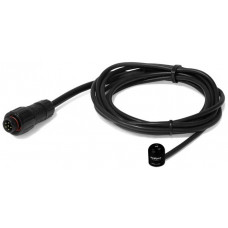Ultraviolet radiation sensor probe
Ultraviolet (UV) radiation is typically defined as total radiation across a range from 100 to 400 nm and is subdivided into 3 wavelength ranges: UV-A (315 to 400 nm), UV-B (280 to 315 nm) and UV-C (100 to 280 nm). Much of the UV-B and all of the UV-C wavelengths from the sun are absorbed by the Earth’s atmosphere.The Ultraviolet radiation sensor probe for Smart Agriculture Xtreme (Apogee SU-100) detects UV radiation from 250 to 400 nm and is calibrated in photon flux units of micromoles per square meter per second (μmol·m-2s-1). .
Specifications
-
Operation temperature: -40 to 70 ºC
-
Operation humidity: 0 to 100 %
-
Sensitivity: 0.2 mV / μmol·m-2s-1
-
Calibration factor (reciprocal of sensitivity): 5.0 μmol·m-m-2s-1 / mV
-
Non-stability (long-term drift): <3% per year
-
Non-linearity: <1% (up to 300 μmol·m-2s-1)
-
Spectral range: 250 ~ 400 nm
-
Repeatability: <1%
-
Diameter: 2.4 cm
-
Height: 2.8 cm
-
Cable length: 5 m
Enter the code in the box below:

